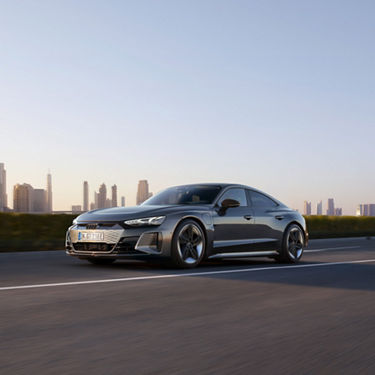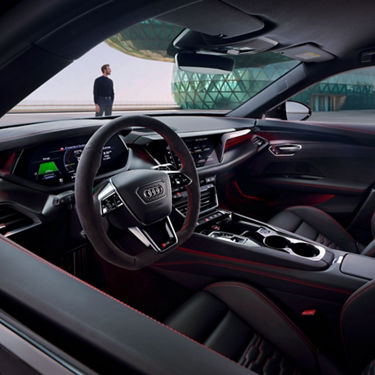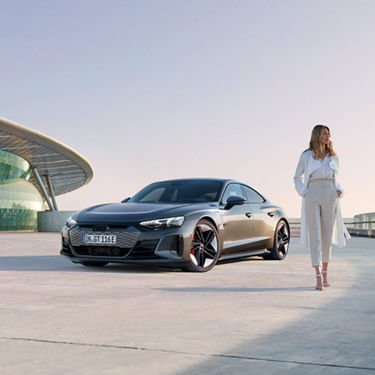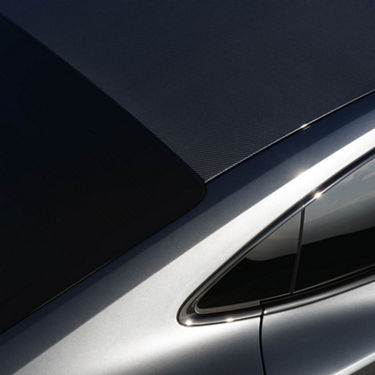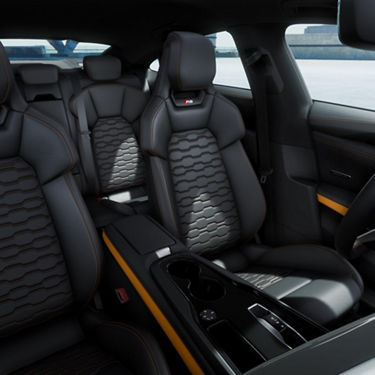
RS e-tron GT
Pure energy and progressive performance
Electrical consumption combined in kWh/100 km¹: 20.2-19.3 (NEDC); 22.5-20.6 (WLTP); CO₂ emissions combined in g/km¹: 0. Electrical consumption and CO₂ emission figures given in ranges depend on the equipment selected for the vehicle.
Output
440
kW
Acceleration
3.3
s
Charging system
800
volt
Universal presence
This ambition – to reinterpret a car – is also reflected in the purist design, which is inspired by aerodynamic performance. Progressive luxury provides the impetus to further intensify a driving experience brimming with emotion. Characteristic: RS emblems with the red rhombus.
Dynamic expression: The RS design packages
The RS design package, red adds striking accents to the vehicle interior through contrasting stitching in express red. The RS design package, grey underscores the design of the vehicle interior through a combination of high-quality interior materials and subtle contrasting stitching in steel grey.
The formula for progress
The 800-volt lithium-ion battery integrated into the flat underbody, offers extremely high performance – both when charging and when driving. In combination with the recuperation system, it provides a range of up to 472 km according to the WLTP measurement procedure (Electrical consumption combined in kWh/100 km¹: 20.2-19.3 (NEDC); 22.5-20.6 (WLTP); CO₂ emissions combined in g/km¹: 0. Electrical consumption and CO₂ emission figures given in ranges depend on the equipment selected for the vehicle).
Energy for 100 km charged in
approx. 5
min
Battery from 5 % to 80% charged in
22.5
min
Range (WLTP)
472
km

RS in a new dimension
The power delivery that the Audi RS e-tron GT² offers with its fully electric quattro all-wheel drive is impressive. With an electric drive on both the front and rear axles, it can deliver up to 440 kW of power (Electrical consumption combined in kWh/100 km¹: 20.2-19.3 (NEDC); 22.5-20.6 (WLTP); CO₂ emissions combined in g/km¹: 0).
The sound of the RS e-tron GT²
Smart factory meets craftsmanship
Manufacturing the electrically powered gran turismo in the Böllinger Höfe, close to Neckarsulm, is where attention to detail meets precision and quality.
